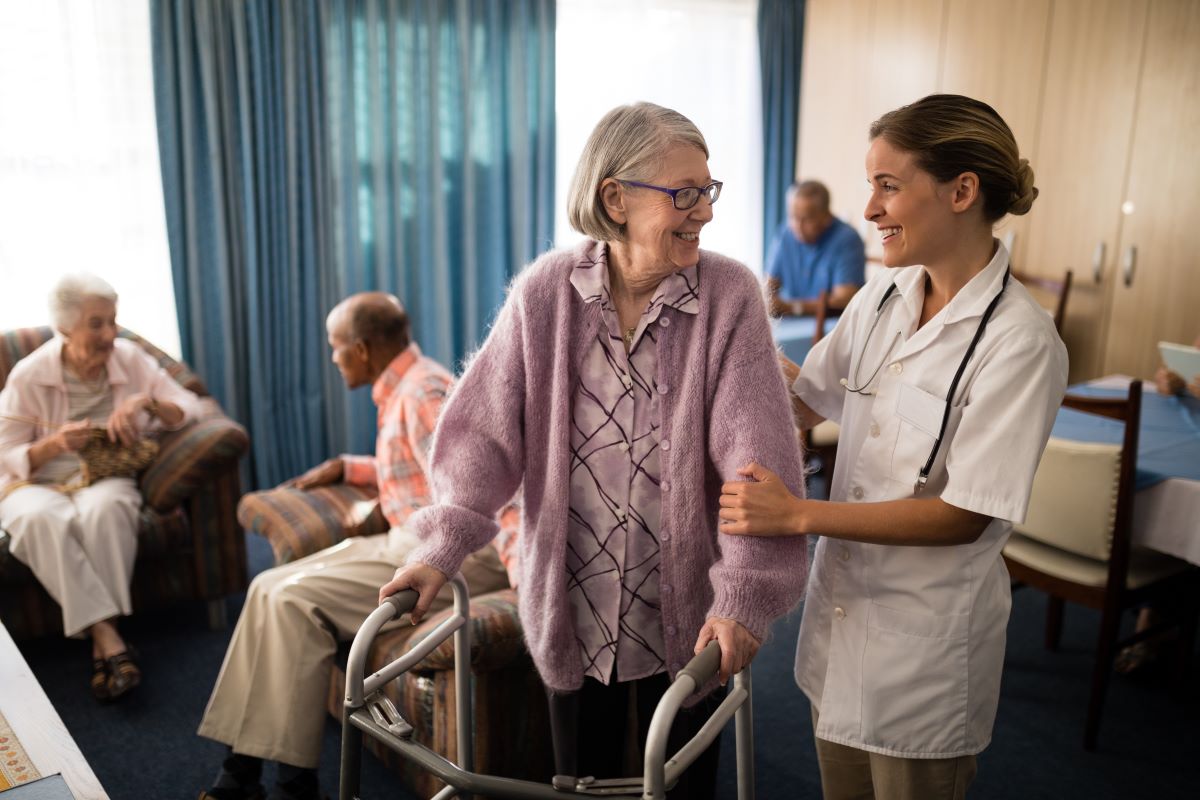What Is a Healthcare Ombudsman? North Carolina Guide for Facilities

Prompted by concerns around the safety of long-term care residents, Congress passed the Older Americans Act in 1965, which established a national Long-Term Care Ombudsman Program. This program encourages use of a healthcare ombudsman to investigate and resolve grievances filed by residents, family members, or other concerned individuals against facilities.
Since the passage of this legislation, state governments have been making strides to train and regulate their own services delivered by a healthcare ombudsman. North Carolina (NC) in particular has implemented a statewide network of healthcare ombudsmen to protect the rights of long-term care residents on a number of fronts.
So, what exactly does a healthcare ombudsman do? If you’re a long-term care facility leader preparing for interactions with an ombudsman, NC-specific operations are important to understand. The following overview describes what NC’s Long-Term Care Ombudsman Program is, who it’s for, and how it’s relevant to your facility.
What Is The North Carolina Ombudsman Program?
For all services delivered by an ombudsman, NC’s Department of Health and Human Services provides regulatory oversight. The Long-Term Care Ombudsman Program’s primary function is to help resolve complaints filed by residents and their families against care facilities. The program consists of three main divisions:
- A statewide office responsible for hiring, training, and overseeing ombudsmen
- 16 regional offices that assign ombudsmen to specific counties to help resolve complaints filed in these counties
- Advisory committees that support the program’s overall adherence to laws impacting the rights of long-term care residents
What Does a North Carolina State Ombudsman Do?
The definition of an ombudsman is someone who serves as an impartial party to investigate and settle complaints made by individuals against organizations. In NC, a healthcare ombudsman will also advocate for residents’ rights, facilitate communication between residents and facilities, and provide regulatory guidance to facility leaders.
Ombudsmen are typically government-appointed workers or volunteers who undergo extensive training. Specific services provided by the Long-Term Care Ombudsman Program include:
- Helping older adults and their families choose a long-term care facility.
- Educating long-term care facilities and providers about rights affecting residents.
- Investigating and helping resolve grievances between residents and facilities.
- Guiding residents through the regulatory process of filing complaints.
- Visiting and monitoring long-term care facilities to identify areas for improvement.
- Participating in policy-making groups to advocate for the rights of residents.
Who Does a Healthcare Ombudsman Work With?
A healthcare ombudsman will generally advise any individuals who have concerns about the rights of long-term care residents, including those in adult care homes and nursing homes. Examples of people who may want to contact an ombudsman are:
- Individuals currently or previously receiving care in a long-term care facility.
- Families of residents of long-term care facilities.
- Individuals or families seeking out a long-term care facility.
- Advocacy groups concerned about the rights of long-term care residents.
- Management or staff concerned about the quality of care at their facility.
If you’re seeking help from an ombudsman, NC counties provide a list of contacts you can reference based on your area of residence. Your designated ombudsman will provide an initial consultation and direct you to the appropriate resources that best address your concerns.
Who Is Your Ombudsman? North Carolina Phone Number and Contact Information
North Carolina’s Office of the State Long Term Care Ombudsman Program consists of several regional divisions. You can contact the state’s main ombudsman through the following contact information or check the website for the division serving your county:
|
|
|
|---|---|
| Ombudsman | Victor Orija |
| Phone Number | (919) 855-3426 |
| Mailing Address | 2101 Mail Service Center, Raleigh, NC 27699-2000 |
| victor.orija@dhhs.nc.gov | |
| Website | https://www.ncdhhs.gov/providers/provider-info/health-care/long-term-care-ombudsman-program |
Tips for Facilities Working With a State Ombudsman
As a long-term care facility leader, it can be overwhelming to undergo an investigation. But it’s important to keep in mind that an ombudsman is trained to provide impartial resolution for both residents and facilities with the goal of improving the patient experience and overall quality of care. To help move the grievance process along, it’s crucial to:
- Communicate. Being open and transparent about the situation at hand will help all parties involved. The ombudsman will likely ask you for information to help them resolve any grievances as quickly and fairly as possible.
- Collaborate. Resolving issues at your facility is a team effort. It’s important to invite any staff members who were involved with the filed complaint and ensure your facility and the ombudsman are working collaboratively to address all relevant concerns.
- Respond. If an issue has been identified, this is an opportunity to improve your facility and the quality of care delivered to your residents. You can respond accordingly by listening to any advice your ombudsman has and implementing any necessary changes.
Beyond the grievance process, ombudsmen are professionals who want to work with you to improve your facility. They’re a helpful resource that can provide accurate information on visitation rights and regulatory care compliance. As a facility leader, it’s important to stay on top of these protocols to ensure that your residents are receiving the best care possible.
Stay Up to Date With the Latest Policies Impacting Your Facility
Seeking more state-specific guidance beyond the topic of a healthcare ombudsman? NC facility leaders can start here. IntelyCare provides free resources to help keep you updated on the latest healthcare news and policies that are relevant to your facility operations.
